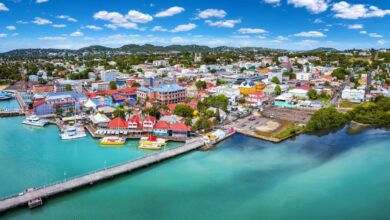TOP 8 Travel Trends for 2025 according to AI

As technology continues to reshape industries, artificial intelligence (AI) is playing an increasingly central role in identifying and shaping travel trends.
By analyzing massive data sets including search patterns, social media activity and consumer behavior, AI provides insight into what travelers will prioritize and explore in 2025.
We asked CHATgpt about the upcoming trends for this year! These are the top travel trends for 2025, as predicted by AI.
1. Sustainable travel is central
AI analysis points to a growing emphasis on environmentally conscious travel by 2025. Travelers will prioritize destinations and accommodations that demonstrate a commitment to sustainability, such as the use of renewable energy, waste reduction and support of the local community.
The search for carbon-neutral holidays and eco-certifications is expected to increase, due to greater awareness of environmental impact.
2. Rise of ‘workcation’ destinations
The concept of combining work and leisure, known as ‘workcations’, will dominate in 2025. AI tools predict increasing demand for destinations with robust digital infrastructure, coworking spaces and long-term stay options.
Cities like Lisbon, Bali and Medellín are expected to remain hotspots for digital nomadswhile new destinations in Eastern Europe and Southeast Asia could emerge as contenders.
3. Personalized itineraries powered by AI
AI-powered platforms are transforming the way travelers plan their trips, providing hyper-personalized itineraries based on preferences and behavior.
From curated dining recommendations to customized activity plans, travelers in 2025 will increasingly rely on AI tools to create seamless and customized experiences.
4. Interest in under-the-radar destinations
AI-powered trend analysis shows a shift towards less-explored destinations as travelers seek authenticity and avoid busy tourist centers.
Remote islands, small towns and destinations with unique cultural offerings are expected to attract more visitors. Destinations such as Albania, Dominica and Bhutan are predicted to rise in popularity as travelers look for off-the-beaten-path experiences.
5. Immersive experiences through technology
Virtual reality (VR) and augmented reality (AR) improve the travel experience, both before and during trips. AI predicts that travelers will increasingly use VR to ‘see’ destinations, while AR applications will provide interactive ways to explore landmarks and cultural sites. This trend is aimed at tech-savvy travelers who want immersive and educational experiences.
6. Well-being-oriented travel

AI data points to a surge in demand for wellness travel, with more people seeking destinations that promote mental and physical well-being. Yoga retreats, spas and nature-oriented escapes are expected to flourish, especially in locations that offer holistic healthcare services and serene natural environments.
7. Adventure tourism is gaining momentum
As travelers prioritize meaningful and exciting experiences, AI predicts a boom in adventure tourism. Activities such as hiking, diving and wildlife safaris are growing in popularity, with an emphasis on responsible tourism practices.
Destinations that offer unique and challenging adventures, such as Patagonia or the Himalayas, are expected to see increased interest.
8. Multi-generational travel on the rise
Family travel is evolving into multi-generational travel, with AI predicting a rise in demand for destinations and accommodations that suit diverse age groups. Cruises, all-inclusive resorts and villa rentals are among the options that will see significant growth in popularity.




